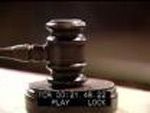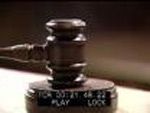
"Why don't you judge for yourselves what is right?" (Luke 12:57).
Of all places, there is an insightful line about the necessity of passing personal judgment that comes from a new one-act play. As reported in a review carried in the New York Times, here is the way a debate goes between the play's two central characters:
"People have to judge you by something," he tells her.
"I don't judge people," she replies.
"Well, I hope you never drown," he replies. "Because if it's you and I and Michael Phelps in the Hamptons and you get a cramp? And you call on me because you're not judgmental? I think you'd probably die."
The dialogue takes place between a man with cerebral palsy and his caregiver, and it is meant to be a funny scene in the play. Regardless, it is also a statement of an obvious truth. We all make judgments about people. And it is neither smart nor virtuous to pretend we don't - or shouldn't.
Oh, I can hear the response of someone now. "Okay, you Christians are judgmental. Thanks for admitting it. But your 'Leader' condemned it!"
First, if this response is meant to claim that some Christians are overly judgmental and too quick to censure and condemn those with whom they disagree, it is surely correct. To make headlines by claiming that a Texas flood or a California fire is "God's judgment" against a person or a lifestyle is simply crude and mean-spirited. If Moses was a prophet with a direct link to Yahweh about the plagues of Egypt, today's TV preachers and would-be prophets don't.
Second, Jesus - along with Paul and Peter and your common sense - actually requires that we pass judgment on truth and falsehood, right and wrong:
"Do not judge by appearances, but judge with right judgment" (John 7:24 NRSV).With this statement, Jesus prohibits racism, sexism, and various other forms of shallow judgment against persons. In the same breath, however, he requires his followers to make wise, prudent, and moral judgments. For example, to stay away from drug parties, immoral relationships, or jobs that require employees to exploit clients by lying about a product or service.
To offer Jesus' "Don't judge lest you be judged" as an excuse for some rotten behavior or to defend an obvious falsehood is to be both disingenuous and dishonest. To claim otherwise, is - uh, well - to make a judgment. To judge what I have claimed. To judge me.
Let's face it. Life requires judgments for the sake of intellectual honesty, making good decisions, and saving oneself from drowning! But it doesn't need professional critics and denigrators. It can't tolerate mean-spirited ridicule.



 "'I Don't Judge People'" by Rubel Shelly is licensed under a Creative Commons License. Heartlight encourages you to share this material with others in church bulletins, personal emails, and other non-commercial uses. Please see our Usage Guidelines for more information.
"'I Don't Judge People'" by Rubel Shelly is licensed under a Creative Commons License. Heartlight encourages you to share this material with others in church bulletins, personal emails, and other non-commercial uses. Please see our Usage Guidelines for more information.Originally published June 26th, 2015.










Comments
Have thoughts on this article? Leave a comment